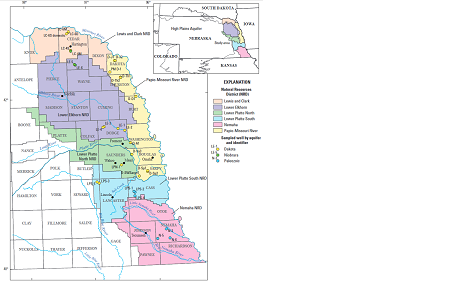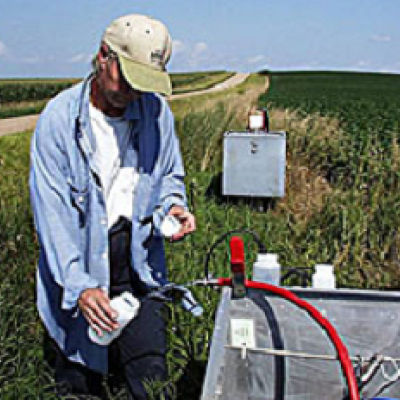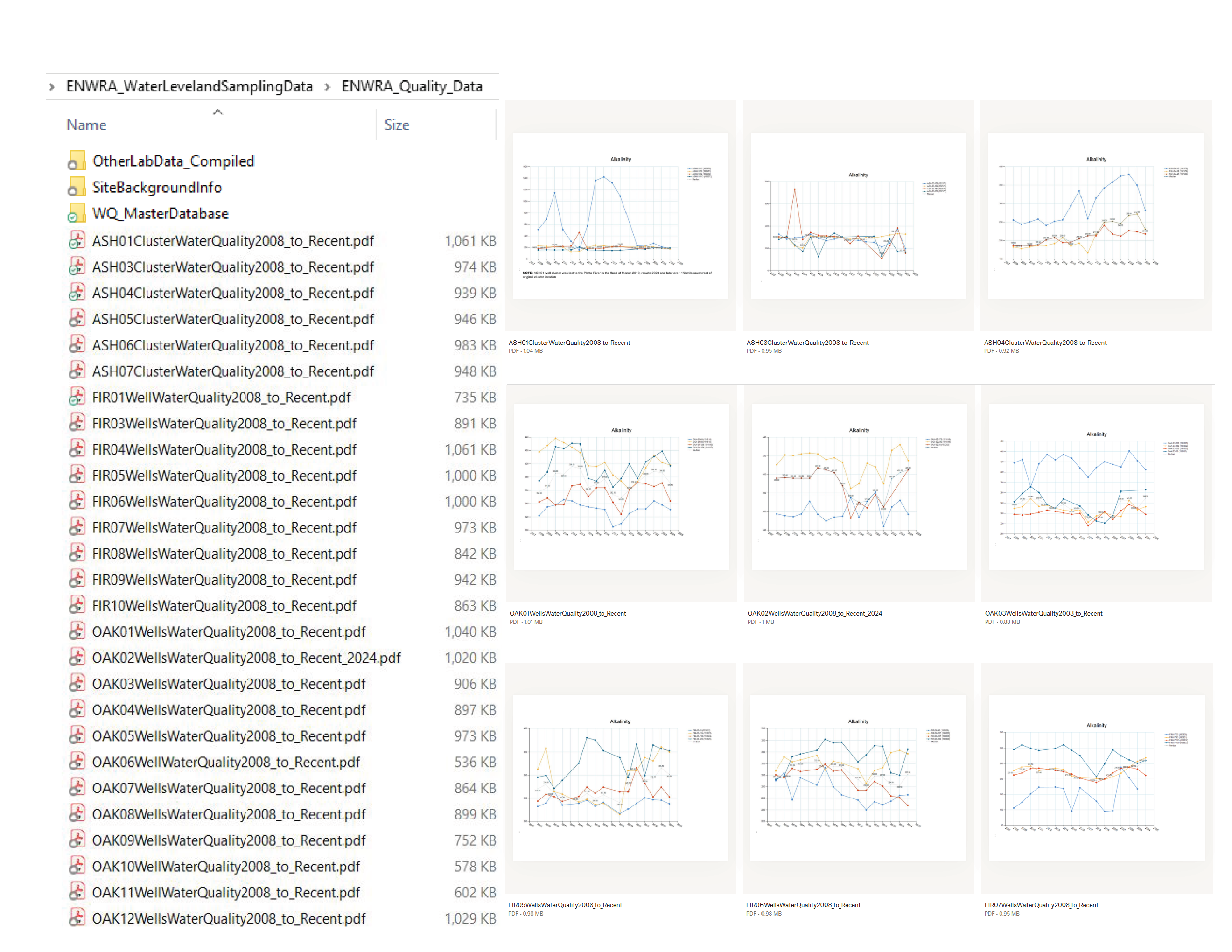Water Quality Monitoring
ENWRA collects annual water quality samples at the Pilot Sites: Oakland, Ashland and Firth (78 monitoring wells targeting multiple levels of the aquifers/different aquifer units) and has the samples analyzed to determine general water chemistry. By comparing water chemistry, hydrogeologists can assess the extent of connection between aquifers and surface water and potential flow paths. In cases where general water chemistry does not provide a clear answer regarding connections, additional ground water samples will be collected and age dated. Age-dating was conducted at each of the pilot sites in the early years of assessment and summarized in USGS reports and CSD bulletins, additional Age-dating conducted by USGS for ENWRA is summarized under the ENWRA Recharge Projects page.
In addition to providing information about aquifer connections and flow paths, water sampling provides site specific information that will likely be useful in the future for water quality conservation purposes. Click here for a link to download ENWRA's 2008 to current compiled datasets and graphs (291 MB). Click here for video demonstrating contaminant migration and wells. Click here for additional Nebraska water related topics and video demonstrations relating to water movement, quality and water resource management.
Secondary Bedrock Aquifer Sampling And Age-Dating Project (WSF #4125)
 Secondary Bedrock Aquifer Sampling And Age-Dating Project (WSF #4125). The following USGS online publication was approved for release and has been made available to the public: USGS Scientific Investigations Report 2021–5055 Suggested citation: Hobza, C.M., and Flynn, A.T., 2021, Groundwater quality and age of secondary bedrock aquifers in the glaciated portion of eastern Nebraska, 2016–18: U.S. Geological Survey Scientific Investigations Report 2021–5055, 42 p. This publication is available online only (https://doi.org/10.3133/sir20215055).
Secondary Bedrock Aquifer Sampling And Age-Dating Project (WSF #4125). The following USGS online publication was approved for release and has been made available to the public: USGS Scientific Investigations Report 2021–5055 Suggested citation: Hobza, C.M., and Flynn, A.T., 2021, Groundwater quality and age of secondary bedrock aquifers in the glaciated portion of eastern Nebraska, 2016–18: U.S. Geological Survey Scientific Investigations Report 2021–5055, 42 p. This publication is available online only (https://doi.org/10.3133/sir20215055).
Click here for a link to a presentation of the results from December 9, 2020. An additional talk was presented at the March 2, 2021 NRD Water Programs Conference.

